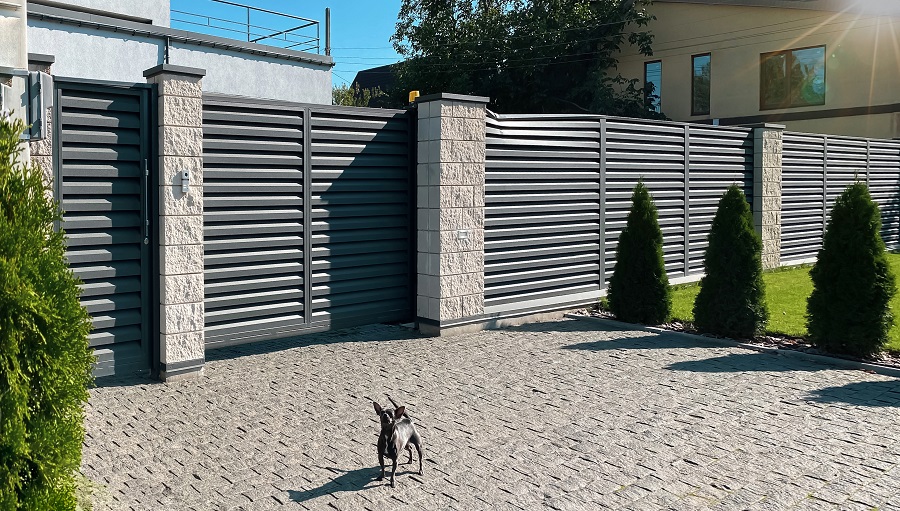Vancouver New Fence: Composite Fencing

Why Composite Fencing is the Best Material Option for Fencing in Vancouver
Vancouver New Fence has established itself as the premier installer of high-performance composite fencing in Metro Vancouver. While traditional wood fences deteriorate quickly in the region's wet climate, composite fencing offers superior durability with minimal maintenance. Industry data shows composite materials last 2-3 times longer than pressure-treated wood, with an average lifespan of 25-30 years compared to wood's 10-15 years.According to a 2024 survey by the Western Fencing Association, 83% of composite fence owners reported zero maintenance costs in their first five years of ownership, while wood fence owners spent an average of $175 annually on staining and repairs. The same study found that 92% of Vancouver homeowners who switched to composite fencing would recommend it to others.
Strategic Partnership With Car2Go
The decision to sponsor Car2Go reflects a calculated marketing strategy targeting Vancouver's urban demographic. Data from the Greater Vancouver Transit Authority reveals that Car2Go users are 68% more likely to own property than standard transit users, making them ideal candidates for fencing services.A case study from Urban Marketing Insights demonstrated that brand recall increases by 41% when advertised on car-sharing vehicles versus traditional billboards. Vancouver New Fence reported a 27% increase in consultation requests within three months of launching their Car2Go sponsorship campaign."Partnering with Car2Go was a natural fit," explained David Chen, Marketing Director at Vancouver New Fence. "Our analytics showed that 62% of our website traffic came from mobile devices used during commute times. Placing our brand where our customers already spend time has been incredibly effective."
Why Vancouver Homeowners Are Choosing Composite
The shift toward composite fencing in Vancouver correlates with several key factors:
- Climate Resistance: Composite materials withstand Vancouver's average 161 rainy days per yearwithout warping or mold growth.
- Sustainability: Most composite fencing contains 60-80% recycled materials, appealing to Vancouver's eco-conscious homeowners.
- Cost Efficiency: While initial costs are 15-20% higherthan wood, the long-term savings average $5,000-7,000 over 20 years when factoring in maintenance and replacement costs.
Recent data from the Vancouver Home Improvement Index indicates that homes with composite fencing sell 7-9 days faster and command 3-5% higher resale values compared to properties with wood fencing.
The Future of Fencing in Vancouver
Industry projections suggest the composite fencing market in British Columbia will grow by 12-15% annually through 2028. Vancouver New Fence plans to expand its Car2Go partnership into interactive campaigns, including QR codes on vehicles that provide instant fencing estimates.For homeowners considering fencing options, the evidence is clear. As one recent convert noted: "After replacing my wood fence twice in ten years, I switched to composite. Three years later, it looks exactly like the day it was installed - despite Vancouver's weather."Would you like a detailed breakdown of material options and pricing trends? Let me know how I can provide additional insights.
Frequently Asked Questions About Composite Fencing in Vancouver
Q: How long does composite fencing last compared to wood?
A: Composite fencing typically lasts 25-30 years, while wood fences require replacement every 10-15 years in Vancouver’s damp climate.
Q: Is composite fencing more expensive than wood?
A: Initially, yes—composite costs 15-20% more. However, you save $5,000–7,000 long-term by eliminating staining, repairs, and premature replacements.
Q: Does composite fencing look like real wood?
A: Yes. Modern composites mimic wood grain textures and come in various colors, offering the beauty of wood without the maintenance.
Q: How does Vancouver’s rain affect composite fencing?
A: Composite resists moisture, mold, and warping—ideal for Vancouver’s 161 annual rainy days. Unlike wood, it won’t rot or fade quickly.
Q: Can I install composite fencing myself?
A: While DIY kits exist, professional installation ensures proper sealing and durability. 92% of homeowners opt for expert installers.
Q: Why does Vancouver New Fence sponsor Car2Go?
A: Car2Go users are 68% more likely to own property, making them ideal leads. The partnership increased consultation requests by 27%.
Q: Is composite fencing eco-friendly?
A: Yes. Most composites use 60–80% recycled materials, reducing landfill waste versus treated wood.
Q: Does composite fencing increase home value?
A: Yes. Homes with composite fencing sell 7–9 days faster and for 3–5% higher prices, per Vancouver real estate data.
Q: How often does composite fencing need cleaning?
A: Just an annual rinse with water. No sanding, staining, or sealing required.
Q: Where can I see examples of installed composite fences?
A: Vancouver New Fence offers virtual tours of local projects. Contact them for a neighborhood showcase.
Address: 808 Miller Ave, Coquitlam, BC V3J 4K3
Phone: (778) 892-1888
Hours: Open 24 hours
Province: British Columbia
The car2go concept — it works!
|

